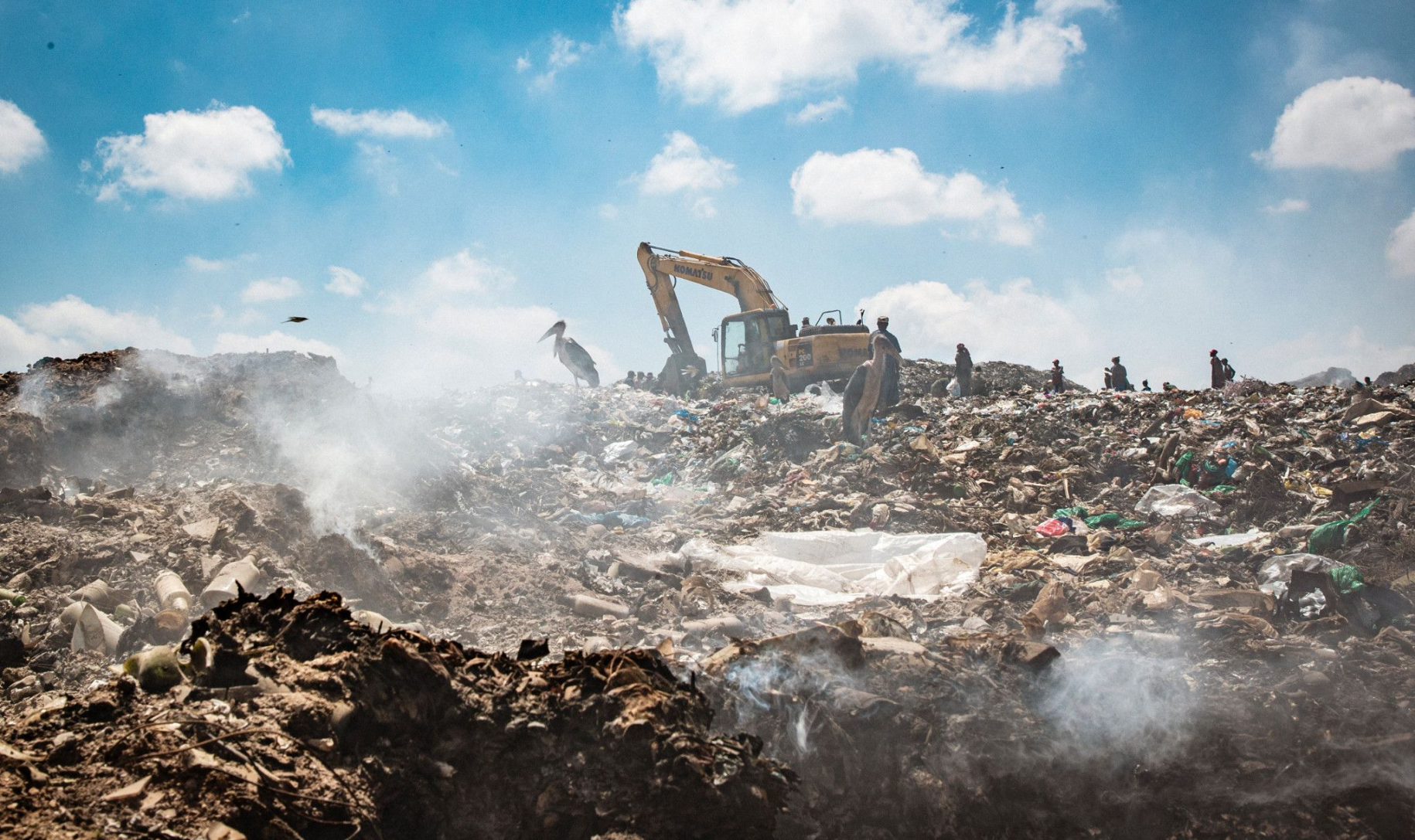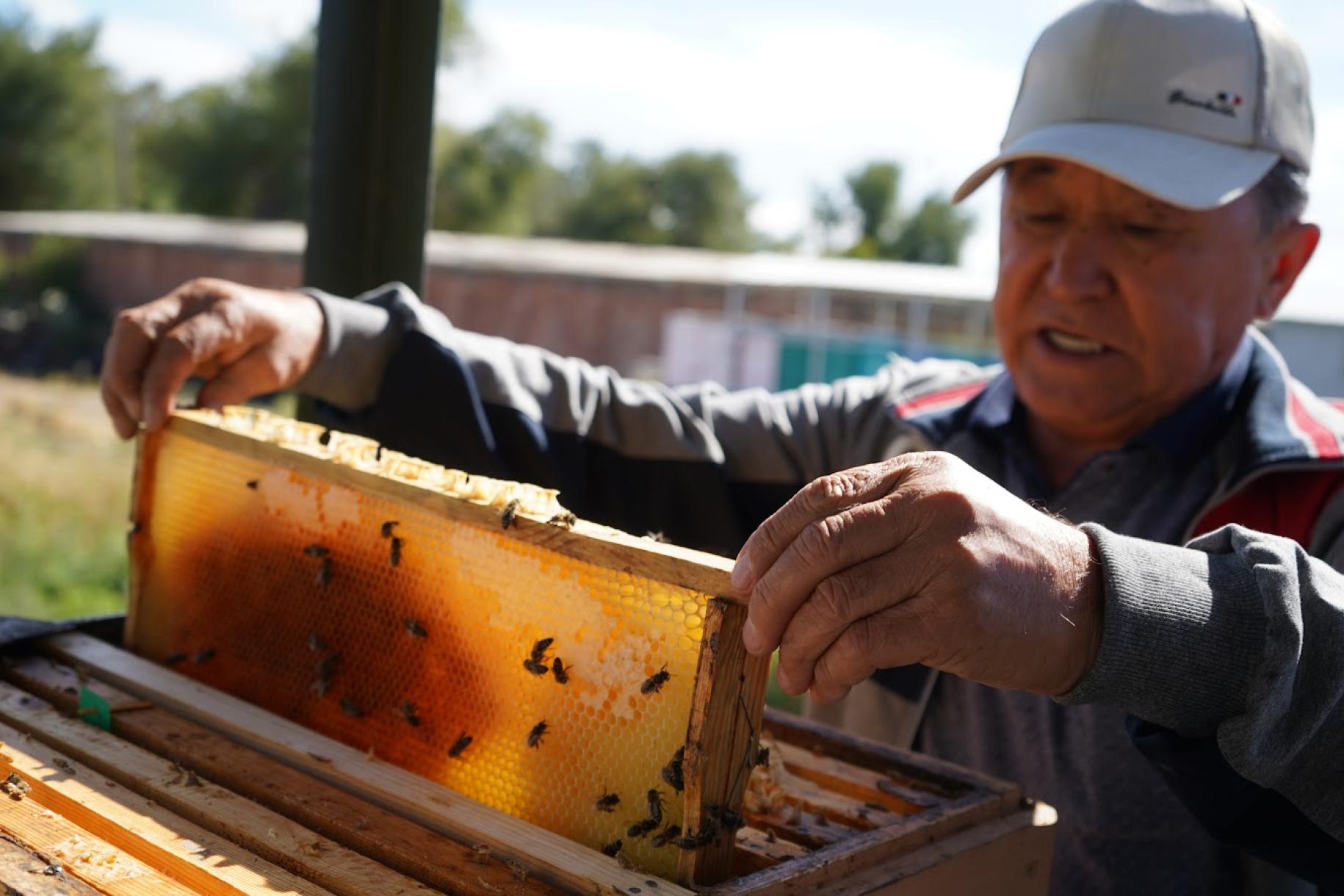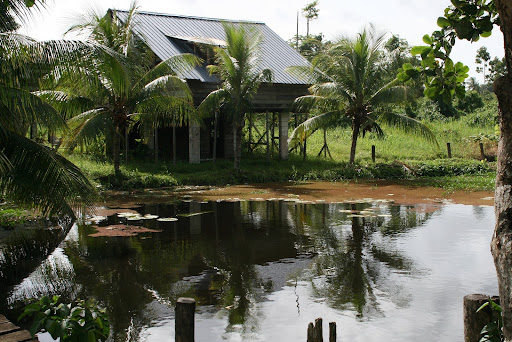‘Game-Changers’ is a new editorial series from the UN Development Coordination Office (DCO) on key transitions that the UN Secretary-General has called for to advance progress towards the Sustainable Development Goals (SDGs), catalyzing a more sustainable and equitable future. This series explores the progress achieved since the adoption of the SDGs in 2015 in key areas and how the UN is supporting this progress. The world needs renewed ambition and action to deliver these Goals at scale.
From the food we eat, water we drink and energy we consume, biodiversity and nature fuel so many parts of life on earth. Over half of the global Gross Domestic Product is dependent on nature and 70 per cent of the world’s poor directly rely on wild species in order to survive. But biodiversity- meaning ‘the variety of life on earth at all levels’- is also essential for limiting the profound effects of climate change and absorbing more than half of all carbon emissions on earth.
Yet this complex engine of life is in crisis, and human activity is driving its decline. Overexploitation of resources is threatening some 1 million animal and plant species. To reverse these trends, we need to shift to sustainable consumption and production patterns.
With only seven years left to achieve the 2030 Agenda for Sustainable Development, investing in key transition areas, such as biodiversity and climate change adaptation and mitigation, can be a game-changer to advance the SDGs and protect our only planet.

Photo: © WFP Rwanda/ JohnPaul Sesonga
Where was the world in 2015?
In 2015, when the 2030 Agenda was adopted, unsustainable consumption and production were driving the decline of biodiversity and altering the health of the world’s marine, terrestrial and freshwater ecosystems. Back then:
- Only 14 per cent of land around the world was officially protected.
- Globally, less than 9 per cent of marine ecosystems were protected. A third of global marine fish stocks were being harvested at unsustainable levels.
- Meanwhile, more and more plastics were polluting the world’s oceans, rivers, and lakes. By 2015, 60 per cent of all plastic ever produced was discarded as waste.
- All country commitments to reduce greenhouse gas emissions combined put the world on a trajectory of a 3°C temperature rise by 2100, compared to pre-industrial levels.
Where are we in 2023 at the SDGs half-time?
At the halfway mark to the 2030 deadline, while global awareness of biodiversity protection has increased, efforts to transform our interaction with nature and resource consumption still lag behind in terms of speed and scale.
- Today, three-quarters of land on earth and about 66 per cent of the marine environment have been significantly altered by human actions.
- More than a third of the world’s land surface and nearly 75 per cent of freshwater resources are now devoted to crop or livestock production.
- Combined with skyrocketing levels of pollution, this degradation of the natural habitat and biodiversity loss is having serious impacts on communities around the world. In 2023, an estimated 100-300 million people are at increased risk of floods and hurricanes because of loss of coastal habitats.

Photo: © UNEP Kenya/ Duncan Moore
The war on nature must stop
The world needs an economic transformation, backed by evidence-based policies and investments, which recognizes our dependence on nature in our lives and livelihoods. Above all, this shift must be measurable, capturing nature’s contribution to our economies as part of national sustainable development plans.
What is the UN doing?
At the global level, the UN convened and supported Member States’ adoption of a critical agreement on biodiversity known as the Kunming-Montreal Global Biodiversity Framework. On the ground, UN teams, under the leadership of Resident Coordinators, are supporting countries to live up to their international commitments to protect biodiversity, promoting a more robust policy and regulatory framework. Our teams are also bringing investment opportunities from national and international partners to make this economic transformation possible—and sustainable. By boosting the adoption of nature-based solutions, UN teams are promoting the sustainable management of natural resources. This is critical to helping nature ‘self-heal’, adapt and bring benefits to the whole of society

Photo: © UNDP Kazakhstan
Spotlight Country: Maldives
In the Maldives, the Joint SDG Fund is providing support to advance the government’s gender-responsive climate financing strategy. The strategy prioritises the transition to mandatory climate and disaster insurance for public assets and infrastructure, including the development of a first-of-its-kind nature-based insurance programme to insure against climate-related losses and damages. The co-creation of sustainable lending products, credit guarantee schemes and tax incentives with private investors is critical to unleash new opportunities for green, blue and sustainability-linked loans and other financing instruments.
Spotlight Country: Suriname

Suriname’s National Climate Agreement, a roadmap to address climate change and access climate financing, has been supported by UN programmes such as forums hosted by Resident Coordinators that involve critical stakeholders, including indigenous and tribal people. The roadmap includes a forest financing strategy and explores how the forest sector can accelerate the country’s national climate targets.
Originally published by UN DCO.
Photo credits: Victor Svistunov on Unsplash, UNDP Fiji, UN in Papua New Guinea, FAO Philippines, UN in Mexico, UN Women Maldives, UN Suriname
Learn more about other examples of what the UN is doing to support this transition:
- Harnessing the potential of the Brazilian Amazon through local and global partnerships | United Nations DCO (un-dco.org)
- Climate Change, Biodiversity Loss and Pollution | Joint SDG Fund (jointsdgfund.org)
- Connecting Blue Economy Actors in Cape Verde | United Nations Joint SDG Fund (jointsdgfund.org)
Note:
The Joint SDG Fund's joint programmes are under the prestige leadership of the Resident Coordinator Office and implementing United Nations Agencies. With sincere appreciation for the contributions from the European Union and Governments of Denmark, Germany, Ireland, Italy, Luxembourg, Monaco, The Netherlands, Norway, Portugal, Republic of Korea, Saudi Arabia, Spain, Sweden, Switzerland and our private sector funding partners, for a transformative movement towards achieving the SDGs by 2030.



















